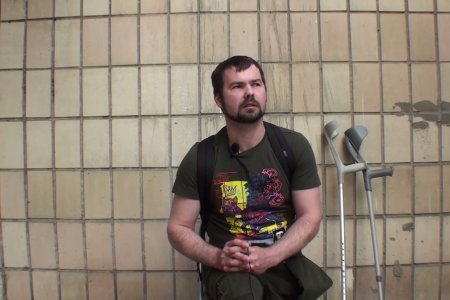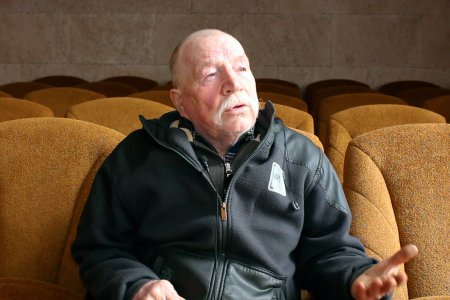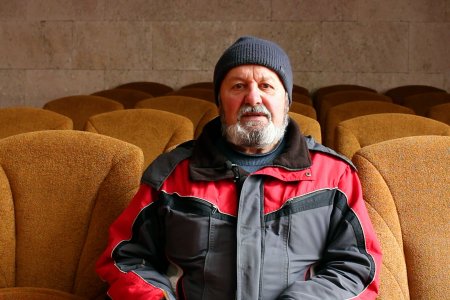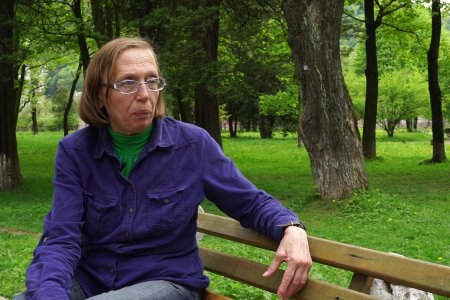On the fourth, it was turbulent: heavy bombing and shooting. We had no intention of leaving. Our children went to Lukianivka, where they have a production facility nearby, and left us with grandchildren. The grandchildren are six years old. The next day, the children found themselves under occupation in Lukianivka. We couldn’t go. How could you leave with two grandchildren? So we stayed.
My grandchildren and I went to the bathhouse, where we felt more protected. There was less glass [shards] and more protection. We came in the morning, and my husband said: “Something is burning in the street.” There was a huge column of smoke, and something was burning. He said: “I’ll go and see if people need help.” He left while my grandchildren and I were having breakfast. And about 20 minutes later, an automatic or machine gun burst sounded. I don’t know why, but I instantly knew my husband had been killed. I didn’t think about myself then but about my grandchildren. But since the Russians were shooting and bombing all around, Grads were flying, and something else, we ran to the neighbors.
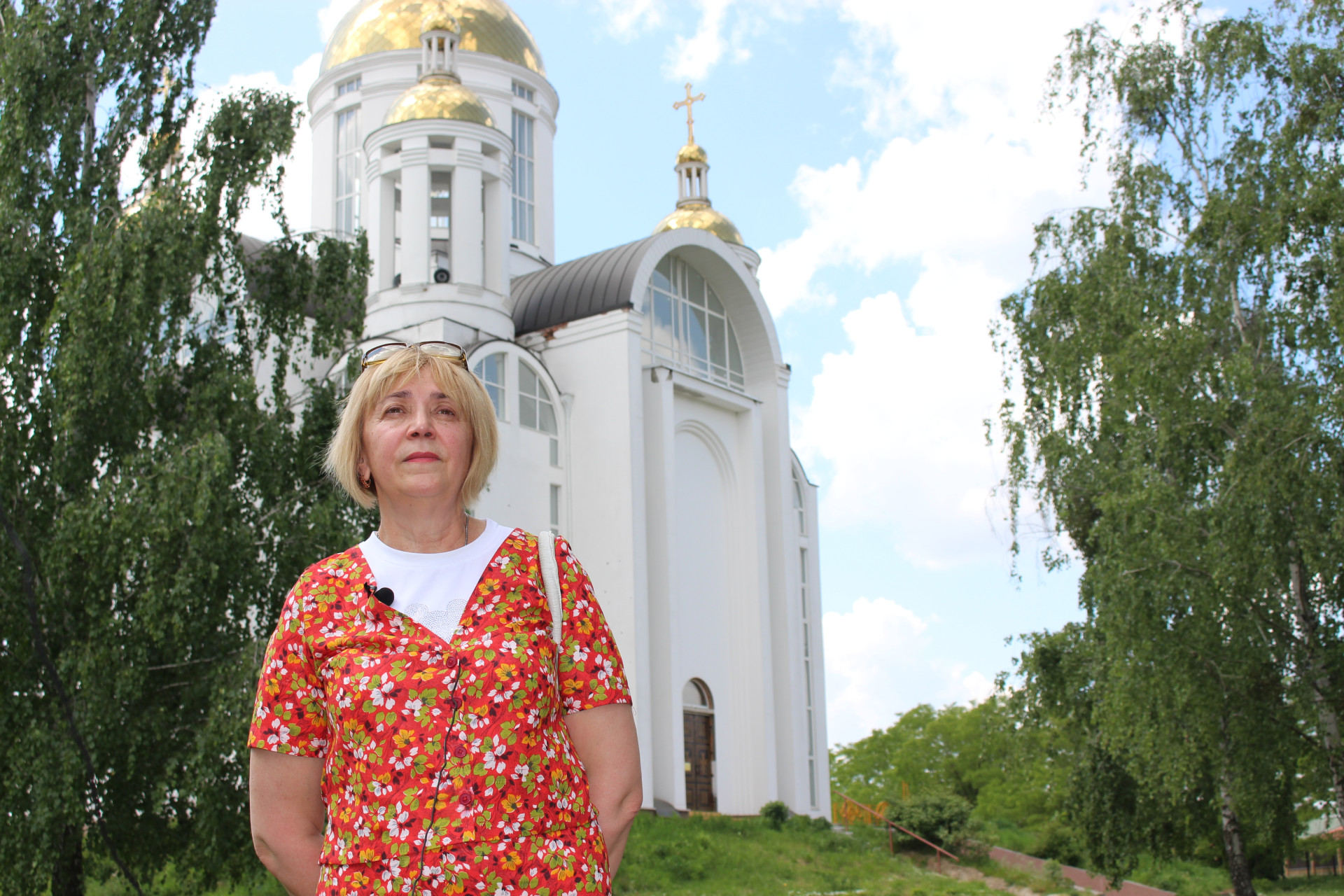
My grandchildren and I climbed over the fence and hid with our neighbors; they had something like a bomb shelter in the basement. However, soon, I left — I was worried about my husband. I didn’t know anything about him. You know, it’s one thing when it seems like he has been killed, but it’s another thing to see. I left my grandchildren with the neighbors, climbed over the fence again, and went to find where he was. I went out, and he was lying on the road. He was killed. They [the Russians] did not aim at the arm or the leg to warn the person. My husband was a pensioner, 64 years old. He didn’t have any weapons with him. He just walked out. They could’ve said, “Go back to the house.” But he was killed immediately... A bullet wound to the head. He instantly bled to death, and that was it.
He was lying on the road, and I tried to lift him but couldn’t. I looked up the street; neighbors lived two houses away from us. I thought I’d go to them and ask someone to help drag my husband. I approached, and they were bringing three children’s bodies, about 25 years old, into the yard in a wheelbarrow— two boys and a girl. It was on Kyievo-Myrotska Str — famous case. They came to their parents, brought dog food and provisions for the parents, and they were all shot, like my husband. Head wounds, and that’s it.
The neighbors said: “Wait, you see, we have such misfortune.” Then, they helped me carry my man into the yard. So that he wouldn’t lie there because I couldn’t lift him with my strength. And three days later, the neighbors with whom I was hiding helped me bury him. That’s all I can tell you about this case.
We remind you that in Bucha, the police have opened a Headquarters for documenting Russian war crimes — anyone can join its work.
